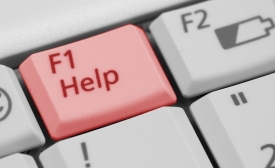disinformation
As the United States grapples with the implications of Kremlin interference in American politics, European countries are deploying a variety of bold tactics and tools to expose Russian attempts to sway voters and weaken European unity. Across the continent, counterintelligence officials, legislators, researchers and journalists have devoted years — in some cases, decades — to the development of ways to counter Russian disinformation, hacking and trolling. And they are putting them to use as never before.
Vladimir Putin's regime is weaponizing the internet to sow chaos, confusion, and discord across the West.

A new report from the U.S. Advisory Commission on Public Diplomacy examines how digital technology has changed the face of PD.
Stopfake.org, a group of researchers from the Mohyla School of Journalism in Kyiv, have identified two strong narratives in their study of Russian propaganda about the Euro Maidan: first, that it was a coup d’état directed by the U.S.; and second, that power was seized in Kyiv by a fascist regime. [...] With a lack of clear narratives and facts from the Ukrainian government, the Western media fell for the Kremlin’s skillful falsehoods.
Russia has repeatedly proposed cooperation on cybersecurity to the US, but has not received a positive response, according to Putin. "We hear these endless and groundless accusations of some kind of interference, talking about cybersecurity. [...] Putin told the Arctic forum he sees positive changes in cooperation between Russia and the United States on Syria
An interview with Anne Applebaum about disinformation, soft power, and Russia.







